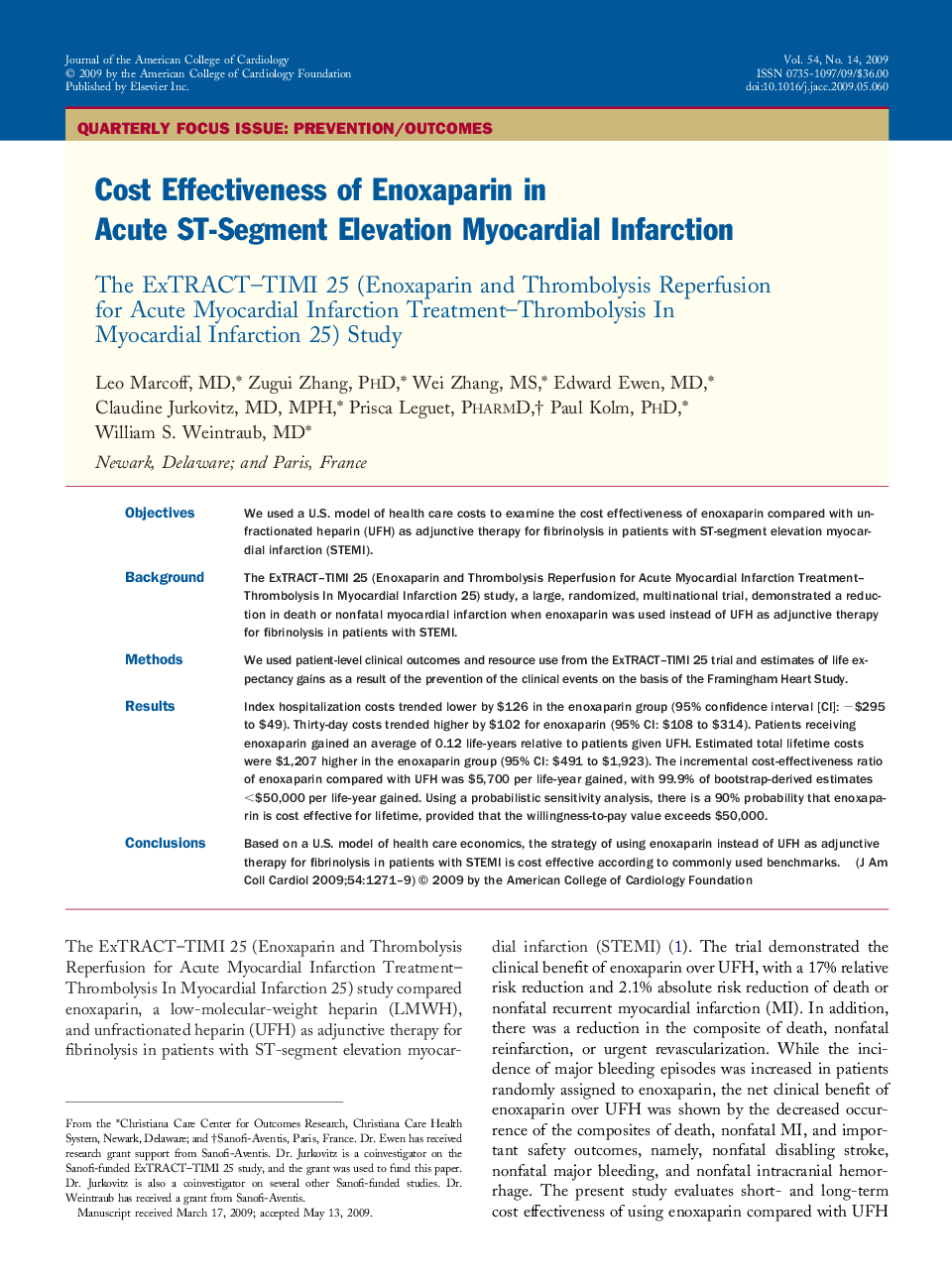| Article ID | Journal | Published Year | Pages | File Type |
|---|---|---|---|---|
| 2951675 | Journal of the American College of Cardiology | 2009 | 9 Pages |
ObjectivesWe used a U.S. model of health care costs to examine the cost effectiveness of enoxaparin compared with unfractionated heparin (UFH) as adjunctive therapy for fibrinolysis in patients with ST-segment elevation myocardial infarction (STEMI).BackgroundThe ExTRACT–TIMI 25 (Enoxaparin and Thrombolysis Reperfusion for Acute Myocardial Infarction Treatment–Thrombolysis In Myocardial Infarction 25) study, a large, randomized, multinational trial, demonstrated a reduction in death or nonfatal myocardial infarction when enoxaparin was used instead of UFH as adjunctive therapy for fibrinolysis in patients with STEMI.MethodsWe used patient-level clinical outcomes and resource use from the ExTRACT–TIMI 25 trial and estimates of life expectancy gains as a result of the prevention of the clinical events on the basis of the Framingham Heart Study.ResultsIndex hospitalization costs trended lower by $126 in the enoxaparin group (95% confidence interval [CI]: −$295 to $49). Thirty-day costs trended higher by $102 for enoxaparin (95% CI: $108 to $314). Patients receiving enoxaparin gained an average of 0.12 life-years relative to patients given UFH. Estimated total lifetime costs were $1,207 higher in the enoxaparin group (95% CI: $491 to $1,923). The incremental cost-effectiveness ratio of enoxaparin compared with UFH was $5,700 per life-year gained, with 99.9% of bootstrap-derived estimates <$50,000 per life-year gained. Using a probabilistic sensitivity analysis, there is a 90% probability that enoxaparin is cost effective for lifetime, provided that the willingness-to-pay value exceeds $50,000.ConclusionsBased on a U.S. model of health care economics, the strategy of using enoxaparin instead of UFH as adjunctive therapy for fibrinolysis in patients with STEMI is cost effective according to commonly used benchmarks.
